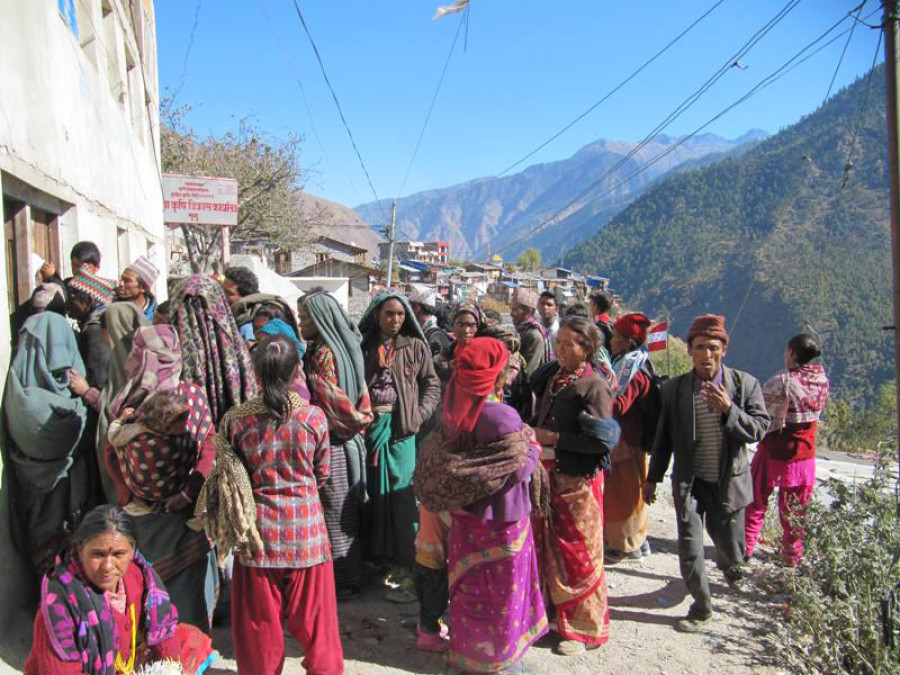Editorial
For a pinch of salt
The government must buttress the public service delivery system so that essential commodities reach rural areas easily.
The news that rural folks have difficulty accessing essential commodities does not shock anyone anymore; the idea that distance equates with destitution has been deeply ingrained in the Nepali psyche. As the Post reported on Sunday, residents of Mugumkarmarong Rural Municipality in Mugu district have to walk for two days to reach Gamgadhi, the district headquarters, to purchase iodised salt. The locals end up sending more money on travel, food and accommodation than on the salt as their requests for having a depot established close by have gone unheeded for years.
Mugumkarmarong locals are not the only people facing such hardships; salt is not the only essential commodity rural folks have difficulty purchasing. They travel to their respective district headquarters every so often to purchase rice, wheat and other such grains at food depots, only to return empty-handed. Even when they are lucky to lay their hands on the grains, their initial excitement gives way to disappointment as the grains are often rotten and hence inedible.
Another problem facing the public distribution system is the diversion of the grains meant for the public. There is no dearth of information that the rice and other grains aimed for public distribution is sold to traders to turn them into liquor. However, the agencies tasked with ensuring equitable distribution of the essentials continue to overlook such a malaise. They are often hand-in-gloves with traders in such diversions, thereby sabotaging the system itself. A proper check and balance mechanism, essential to ensure that the grains reach the target groups without any foul play, is long overdue.
In rural hinterlands, edible grains and essential commodities come with exorbitant price tags. While traders blame expensive transport fees for the high prices, the problem has more to do with the neglect and ineptitude on the part of the government and various stakeholders rather than geographical remoteness alone. Having paid handsomely for essential commodities, a large section of the rural population ends up remaining broke all the time and is thus forever compelled to remain below the poverty line.
The fact that essential food items remain out of reach of the rural folks exposes the failure of successive governments to take the public service delivery system across the country. These problems remain unsolved even after the adoption of federalism, laying bare the fact that the fundamental necessities of the people remain unmet no matter what political transformations the country goes through.
The government must realise that access to public services is a right, and not a luxury, of citizens. It is, in fact, a constitutional duty. As such, things as fundamental as these should be governed by conscience rather than being necessitated by the constitution. But the tragedy is that even the constitutional mandate has failed to ensure people's access to such services, let alone conscience.
The success of a government does not lie in the big promises it makes during its budget speech but in the way it takes care to solve the smallest of people's problems through an effective support system. But successive governments have failed to ensure easy availability of essential commodities for everyone, let alone providing the poor with such commodities for free or at subsidized rates. The government must work towards streamlining public service reforms so that people from rural hinterlands do not feel left out and can sustain their life and livelihood in a dignified manner.




 13.12°C Kathmandu
13.12°C Kathmandu














